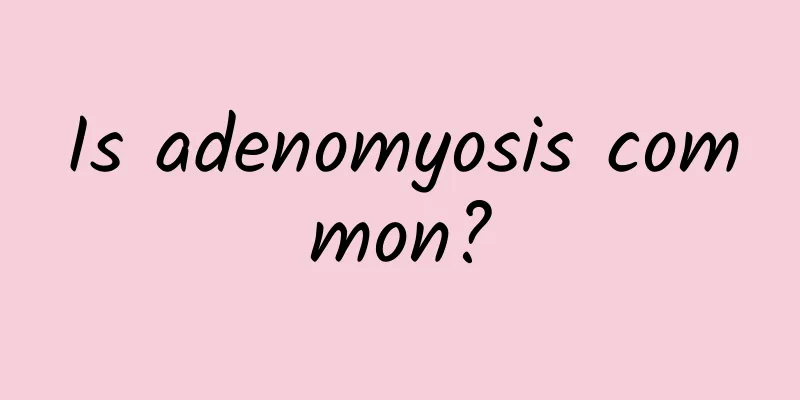What causes blood clots during menstruation?

|
Menstrual blood clots may be caused by physiological phenomena, abdominal colds, endocrine disorders, endometritis, uterine fibroids, etc. General treatment and drug treatment can be improved under the doctor's diagnosis. If you experience any discomfort, you should seek medical attention in time. 1. Physiological phenomenon: During menstruation, the endometrium will fall off, and with the outflow of menstrual blood, a small number of women's uterine mucosa will fall off in large quantities. If there are no other discomfort symptoms, this is a normal phenomenon. Don't worry too much. Maintain personal hygiene and no special treatment is required. 2. Cold abdomen: If you do not keep warm during menstruation or eat raw and cold food, the menstrual blood will not be discharged smoothly, and it will be deposited in the uterine cavity and cannot be discharged, which will form blood clots. You should pay attention to keeping warm at ordinary times and avoid eating raw and cold food, such as ice cream, ice cream, etc. You can use a hot water bag to heat the abdomen for 10 to 15 minutes to relieve symptoms. 3. Endocrine disorders: If you are too nervous, stay up late, etc., which leads to endocrine dysfunction, you may experience symptoms such as menstrual blood clots and abdominal pain. It is recommended to stay happy, get enough sleep, and follow the doctor's advice, such as Jiawei Xiaoyao Pills, Qizhi Xiangfu Pills, etc., to improve the discomfort. 4. Endometritis: If the endometrium is inflamed, it will stimulate the endometrium to shed in large quantities, and then cause the endometrium to flow out with menstrual blood. You can take medication under the guidance of a doctor, such as Jingangteng Capsules, Tinidazole Capsules, etc. At the same time, increase the bed rest time to help the inflammation recover. 5. Uterine fibroids: If you have uterine fibroids, the increase in the area of the endometrium may cause symptoms such as heavy menstrual flow and blood clots. Medroxyprogesterone acetate tablets, megestrol acetate dispersible tablets, etc. can be used for drug treatment under the guidance of a doctor to relieve the growth of fibroids. If the condition is serious, surgical treatment can be taken, such as myomectomy, hysterectomy, etc., to remove the lesions. Active treatment after illness can promote recovery and improve the quality of life. During menstruation, you should pay attention to maintaining hygiene and avoid having sex. |
<<: Can cervical erosion cause abdominal pain?
>>: Causes of menstrual disorders
Recommend
How Bacterial Vaginosis is Spread
Bacterial vaginosis is a stubborn disease that is...
What are the symptoms of chronic cervicitis?
There are many gynecological diseases now, and ch...
Why do patients with uterine fibroids experience abnormal uterine bleeding?
Uterine bleeding is a common symptom of uterine f...
What is the best medicine for vulvar itching?
What is the best medicine for vulvar itching? Vul...
What are the common symptoms of uterine fibroids?
What are the symptoms of uterine fibroids? Common...
Is pelvic effusion accompanied by abdominal pain?
Pelvic effusion is a common gynecological disease...
What are the treatments for cervicitis? Three major treatments for cervicitis in women
Cervical disease is common and can cause great ha...
Can amenorrhea be regulated?
Amenorrhea can be improved through conditioning. ...
Grasp the 3 golden opportunities to burn fat and lose fat
Many people try all kinds of methods to get rid o...
Can I soak my feet during my period? It can drive away the cold
Menstruation is a special period for women. Most ...
Specific causes of primary dysmenorrhea
When dysmenorrhea is severe, it makes many women ...
Can I get pregnant with endometrial tuberculosis?
There are many issues that women need to pay atte...
What should I do if I catch a cold and feel unwell after having an abortion?
What should I do if I catch a cold and feel unwel...
Common factors for recurrent pelvic peritonitis
Pelvic peritonitis is a common female disease. Ge...
Causes of bleeding in urine due to vaginitis
In cases where vaginitis may cause bleeding in ur...









